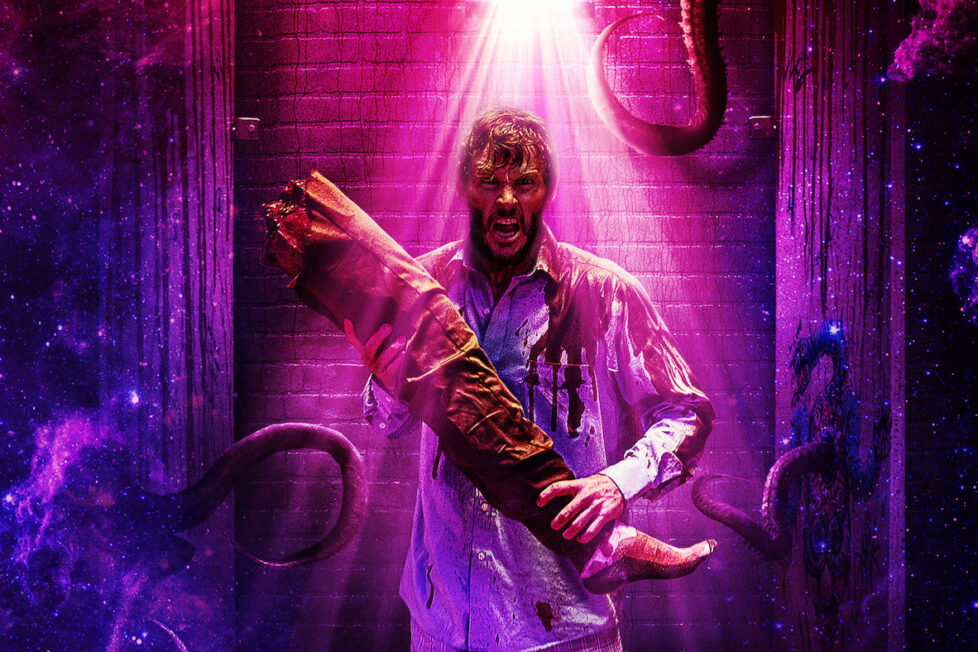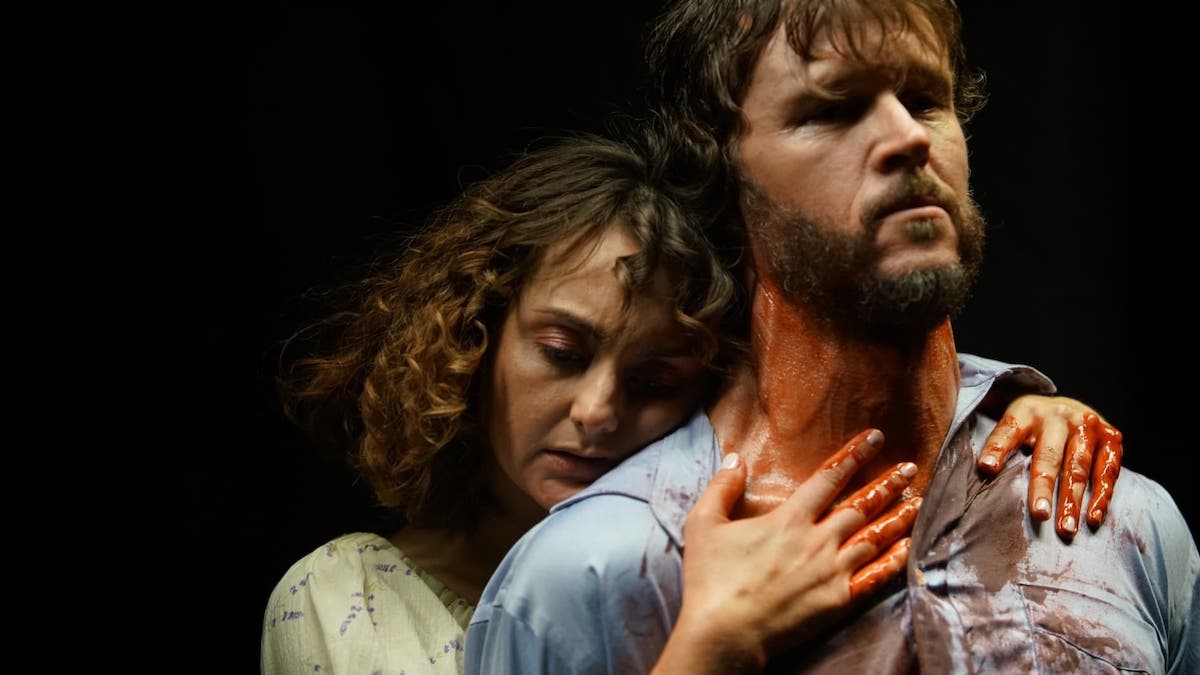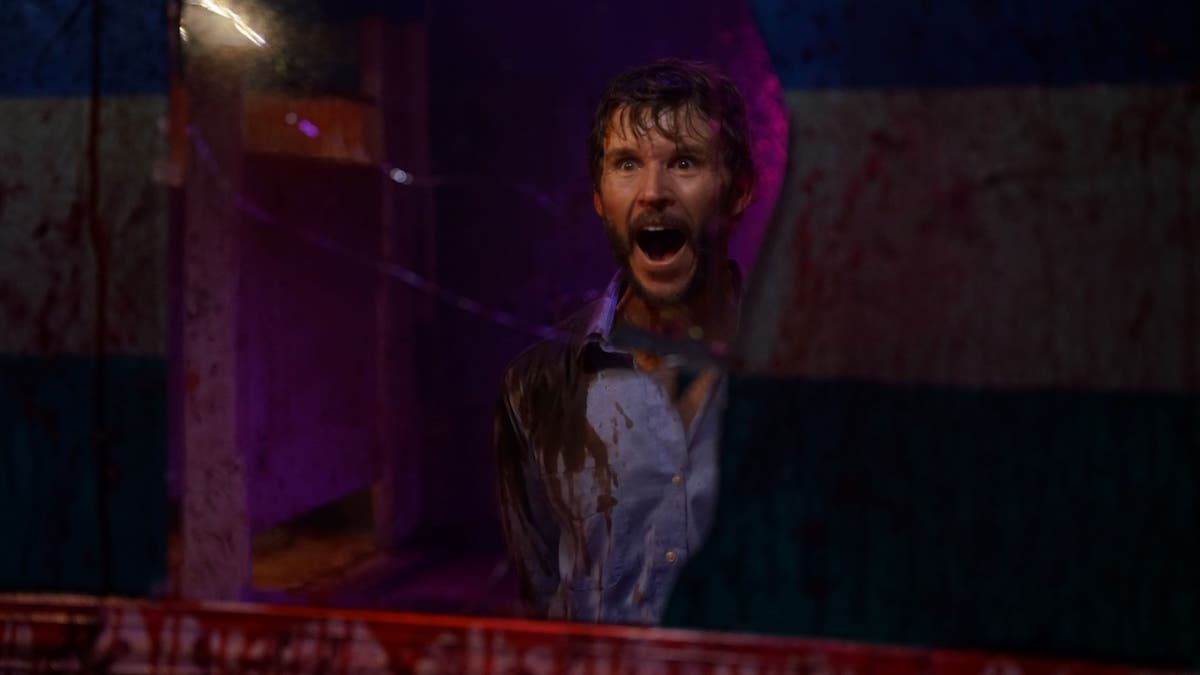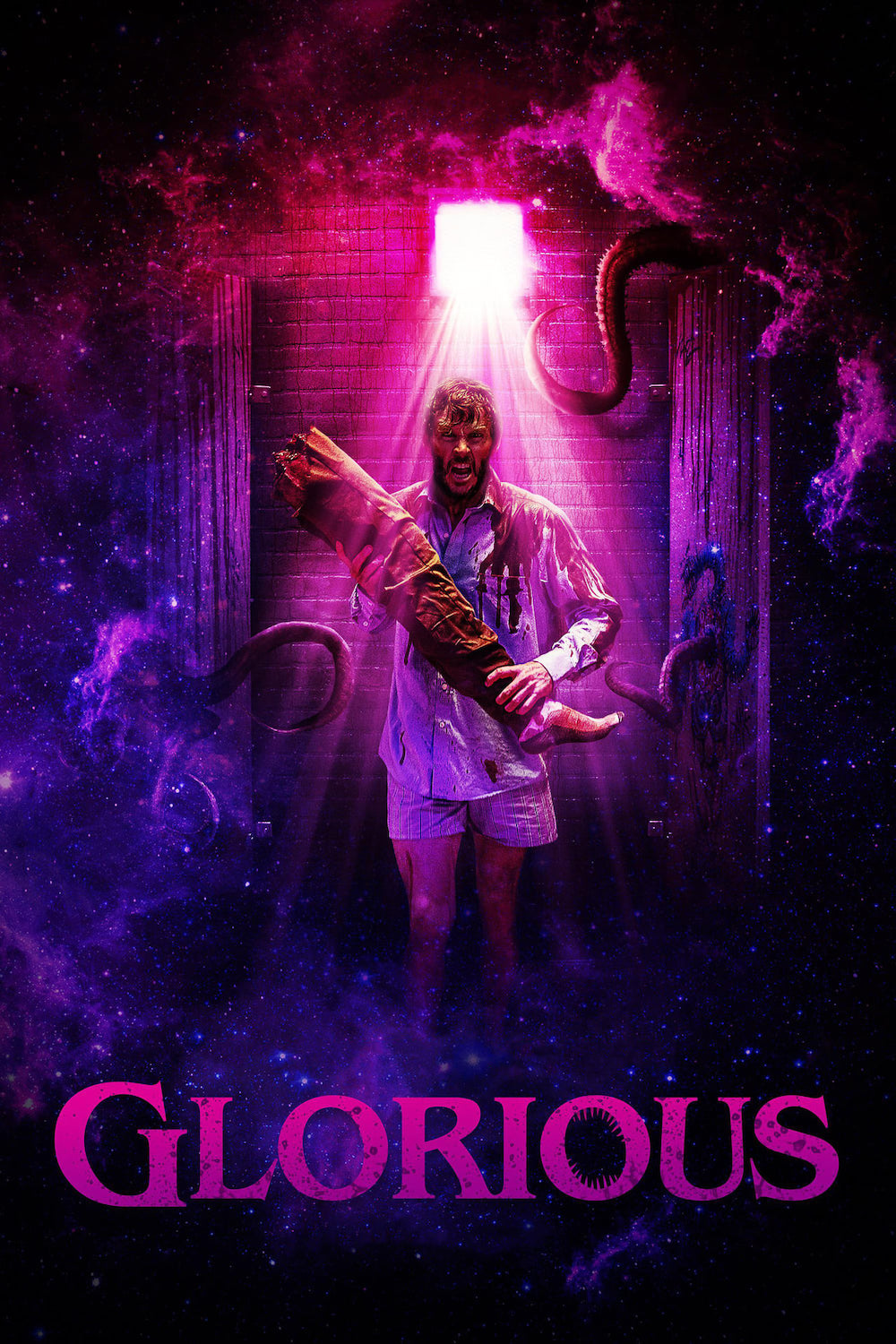GLORIOUS (2022)
A hungover man meets a god in a public washroom.

A hungover man meets a god in a public washroom.


Confining a small number of people to an isolated location and mortally threating one or more of them is a familiar setup for low-budget horror and thrillers, and not just in the slasher genre. Recently, we’ve seen both Revealer (2022) and Offseason (2021), and now Rebekah McKendry’s Glorious. And while this film’s framework doesn’t depart far from the tried-and-tested model, in the details it’s full of original thinking, not least because one of the trapped individuals here is—or claims to be—a deity.
Glorious begins with what seems to be a nightmare of a woman’s voice but soon switches to the waking world, with Wes (Ryan Kwanten) driving along deserted roads somewhere in the rural US. Before long, he pauses at a rest stop, where the entire film (brief flashbacks and/or hallucinations excepted) takes place.
“Some things may seem broken but it usually means you stopped trying,” says a strange woman (Tordy Clark) to Wes as he struggles with a vending machine; the single candy bar therein perhaps representing the last chance in life, or at least his hopes for one. Wes seems to be in a bad way, spending the evening drinking and burning photos, contemplating an old teddy bear, and apparently haunted by memories of Brenda (Sylvia Grace Crim).

Waking hungover and sick with his trousers missing, Wes heads to the rest stop’s rancid men’s room (you can almost smell it). The first hint of strangeness is a weird painting, like a psychedelic rendering of Hindu mythology, on the wall of the stall where he throws up—depicted in jump cuts to an upbeat, apparently classical accompaniment on the soundtrack, a nice example of the film’s imaginative low-budget humour.
There’s a glory hole too… and less expectedly a cheery voice from the other side of the partition.
Though Wes insists he’s not into “conversations with random dudes hiding out in bathroom stalls”, the voice is insistent, revealing itself in time as a “very lonely, very old god” called Ghatanothoa. He turns out to be a reluctant potential destroyer of the world (as, in his own way, we later learn Wes is), and tries to enlist this mortal in performing some universe-saving ritual that for a long time remains, frustratingly to Wes, unspecified.
As so often in these apparent two-handers, a third person—Gary (André Lamar)—arrives at one point to stir things up, and as so often there’ss a final twist revelation about Wes which isn’t wholly unexpected. But the real pleasures of Glorious isn’t its absurd and thin storyline… instead, it lies in the performances and the film’s capacity to divert and surprise even when nothing much is going on—beyond inconclusive bathroom dialogue with an unknowable entity.

McKendry, here making her third feature, smartly exploits the limited resources—space, people, objects, and (presumably) money—available to her. Wes is frequently engaged in one physical activity or another while Ghatanothoa expounds, for example, successfully averting the real risk of the film becoming a static exchange of dialogue. Some careful editing by Joseph Shahood also helps. Occasional cuts to images of the Earth from space, meanwhile, provide a bargain-basement cosmic context.
Glorious has a few conventional horror touches. For example, there’s some grotesquerie in a car between Wes and Brenda, and an escape attempt by Wes through a ventilation shaft that’s obviously much too extensive for the small bathroom block. The distortion of Ghatanothoa’s speech at moments of anger is effectively done, and while the VFX are of dubious quality occasionally, the animation of the bathroom wall’s graffiti is especially creative.
There’s some climactic gore, some body horror, and a touch of the Lovecraftian, too, but nothing in Glorious is at all frightening or even shocking. But it’s frequently funny, nearly always inventive in small ways, and never devoid of interest even when the story sometimes drags.
This extends to the writing, as well (one of the three credited writers being McKendry’s husband). The double entendre potential of two strangers getting to know each other in a deserted men’s room also isn’t ignored. For example, Ghatanothoa’s admonition to Wes to “slow down and grip tighter”, requests for “satisfaction”, and of course the film’s title—clearly a reference to the glory hole as well as its divine being. But there’s subtler cleverness also going on, and Ghatanothoa in particular is given some wonderfully droll lines.

Kwanten makes for an entertaining Wes covering a wide range of moods, making the most of numerous opportunities for tortured soliloquies but also displaying the sense of timing and fun that typified his performance as Jason Stackhouse in HBO’s True Blood. Indeed, he’s at his best in happier spells. (The intervening decade since that vampire drama ended has aged him, so at first you’ll probably wondering where you recognise him from.)
The always outstanding J.K Simmons, meanwhile, is terrific as the voice of Ghatanothoa: long-winded, pedantic, sometimes short-tempered, sometimes considerate, a genuine character both human and inhuman although we never truly see him. Crim, as Brenda, does as much as she can with a character that doesn’t really develop and only exists for us in relation to Wes.
Glorious is slightly repetitive and, while entertaining for 79-minutes, could’ve been really sharp as a half-hour short instead. But for the most part, it’s a witty, crazy, and likeable riff on the stuck-in-the-back-of-beyond-with-a-psycho trope.
USA | 2022 | 79 MINUTES | 2.39:1 | COLOUR | ENGLISH


director: Rebekah McKendry.
writers: Joshua Hull, David Ian McKendry & Todd Rigney.
starring: Ryan Kwanten & J.K Simmons (voice).
